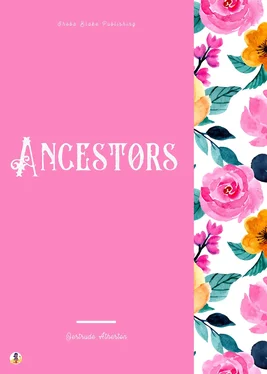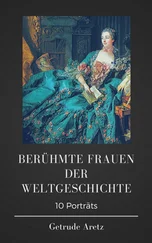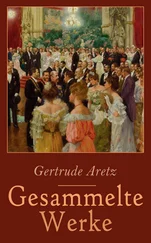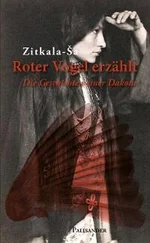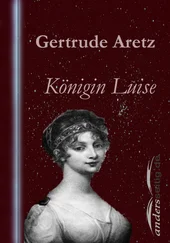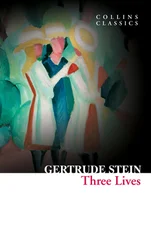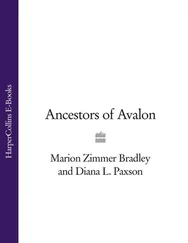Gertrude Atherton - Ancestors
Здесь есть возможность читать онлайн «Gertrude Atherton - Ancestors» — ознакомительный отрывок электронной книги совершенно бесплатно, а после прочтения отрывка купить полную версию. В некоторых случаях можно слушать аудио, скачать через торрент в формате fb2 и присутствует краткое содержание. Жанр: unrecognised, на английском языке. Описание произведения, (предисловие) а так же отзывы посетителей доступны на портале библиотеки ЛибКат.
- Название:Ancestors
- Автор:
- Жанр:
- Год:неизвестен
- ISBN:нет данных
- Рейтинг книги:3 / 5. Голосов: 1
-
Избранное:Добавить в избранное
- Отзывы:
-
Ваша оценка:
- 60
- 1
- 2
- 3
- 4
- 5
Ancestors: краткое содержание, описание и аннотация
Предлагаем к чтению аннотацию, описание, краткое содержание или предисловие (зависит от того, что написал сам автор книги «Ancestors»). Если вы не нашли необходимую информацию о книге — напишите в комментариях, мы постараемся отыскать её.
Ancestors — читать онлайн ознакомительный отрывок
Ниже представлен текст книги, разбитый по страницам. Система сохранения места последней прочитанной страницы, позволяет с удобством читать онлайн бесплатно книгу «Ancestors», без необходимости каждый раз заново искать на чём Вы остановились. Поставьте закладку, и сможете в любой момент перейти на страницу, на которой закончили чтение.
Интервал:
Закладка:
“I am tired, and I don’t know a soul here. I almost wish Lady Victoria had not asked me down, although I have wanted all my life to visit one of the ancestral homes of England.”
“Oh, you’ll get over that, and used to us,” said Miss Thangue, smiling. “Your staircase is behind this door, and we can slip out without attracting attention. They are all gabbling over Jack’s election.”
She opened a door in a corner of the hall where the newly arrived guests were gathered about Lady Victoria’s tea-table, and led the way up a wide dark and slippery stair. After the first landing the light was stronger, and the walls were, to an inch, covered with portraits and landscapes, the effect almost as careless as if the big open space were a lumber-room.
“Are they all old masters?” asked Miss Isabel Otis, politely, her eyes roving over the dark canvases.
“Oh no; the masters are down-stairs. I’ll show them to you to-morrow. These are not bad, though.”
“What a lot of ancestors to have!”
“Oh, you’ll find them all over the house. These are not Gwynnes. This house came to Lord Strathland through the female line. It will be Jack’s eventually—one way or another; and Jack must be more like the Eltons than the Gwynnes—unless, indeed, he is like his American ancestors.” She turned her soft non-committal eyes on the stranger. “You are his thirty-first cousin, are you not?”
“Not quite so remote. But why do you call him Jack? He is known to fame as Elton Gwynne.”
“His name is John Elton Cecil Gwynne. We are given to the nickname these days—to the abbreviation in general.”
They were walking down a corridor, and Miss Thangue was peering through her lorgnette at the cards on the doors.
“I know you are on this side. I wrote your name myself. But exactly where—ah, here it is.”
She opened the door of a square room with large roses on the white wall-paper, and fine old mahogany furniture. The sofa and chairs and windows were covered with a chintz in harmony with the walls. “It is cheerful, don’t you think so?” asked Miss Thangue, drawing one of the straight curtains aside. “Vicky had all the rooms done over, and I chose the designs. She is quite intolerantly modern, and holds that when wall-paper and chintz can save an old house from looking like a sarcophagus, why not have them? That bell-cord connects with your maid’s room—”
“I have no maid. I am not well off at all. I wonder Lady Victoria thought it worth while to ask me down.”
“Dear me, how odd! May I sit with you a little while? I never before saw a poor American girl.”
“I’ll be only too grateful if you will stay with me as long as you can. I am not exactly poor. I have a ranch near Rosewater, some property and an old house in San Francisco. All that makes me comfortable, but no more; and there are so many terribly rich American girls!”
“There are, indeed!” Miss Thangue sat forward with the frank curiosity of the Englishwoman when inspecting a foreign specimen. But her curiosity was kindly, for she was still a girl at heart, interested in other girls. Miss Otis, looking at her blond, virginal face, took for granted that she was under thirty, and owed her weight to a fondness for sweets and sauces.
“How can you travel in Europe if you are not rich?” demanded Flora. “I never dare venture over except as the guest of some more fortunate friend.”
“Are you poor?” asked Miss Otis, her eye arrested by the smart little afternoon frock of lace and chiffon and crêpe-de-chine.
“Oh, horribly. But then we all are, over here. If it were not for the Jews and the Americans we’d have to make our own clothes. The dressmakers never could afford to give us credit.”
“They all looked very wealthy down-stairs.”
“Smart, rather. This happens to be a set that knows how to dress. Many don’t. You know something of it yourself,” she added, with a frank survey of the girl’s well-cut travelling-frock and small hat. “Lots of Americans don’t, if you don’t mind my saying so—for all their reputation. I went to a dinner at an American Legation once and two of your countrywomen came with their hats on. They had brought letters to the Minister, and he hadn’t taken the precaution of looking them over. He was terribly mortified, poor thing.”
She related the anecdote with philanthropic intention, but Miss Otis put her half-rejected doubts to flight by remarking, lightly:
“We don’t do that even in Rosewater.”
“Where is Rosewater? What a jolly name!”
“It is in northern California, not far from Lady Victoria’s ranch and what is left of ours. I have spent most of my life in or near it—my father was a lawyer.”
“Do tell me about yourself!” Like most amiable spinsters, she was as interested in the suggestive stranger as in a new novel. She sank with a sigh of comfort into the depths of the chair. “May I smoke? Are you shocked?”
Then she colored apprehensively, fearing that her doubt might be construed as an insult to Rosewater.
But Miss Otis met it with her first smile. “Oh no,” she replied. “Will you give me one? Mine are in my trunk and they haven’t brought it up.” She took a cigarette from the gayly tendered case and smoked for a few moments in silence.
“I don’t know why you should be interested in my history,” she said at last in her slow cold voice, so strikingly devoid of the national animation. “It has been far too uneventful. I have an adopted sister, six years older than myself, who married twelve years ago. Her husband is an artist in San Francisco, rather a genius, so they are always poor. My mother died when I was little. After my sister married I took care of my father until I was twenty-one, when he died—four years ago. There are very good schools in Rosewater, particularly the High School. My father also taught me languages. He had a very fine library. But I do not believe this interests you. Doubtless you want to know something of the life with which Lady Victoria is so remotely connected.”
“I am far more interested in you. Tell me whichever you like first. How are you related, by-the-way?”
“Father used to draw our family tree whenever he had bronchitis in winter. One of the most famous of the Spanish Californians was Don José Argüello. We are descended from one of his sons, who had a ranch of a hundred thousand acres in the south. When the Americans came, long after, they robbed the Californians shamefully, but fortunately the son of the Argüello that owned the ranch at the time married an American girl whose father bought up the mortgages. He left the property to his only grandchild, a girl, who married my great-grandfather, James Otis—a northern rancher, born in Boston, and descended from old Sam Adams. He had two children, a boy and a girl, who inherited the northern and southern ranches in equal shares. The girl came over to England to visit an aunt who lived here, was presented at court, and straightway married a lord.”
“Then you are second cousin to Vicky and third to Jack. I had no idea the relationship was so close.”
“It has seemed very remote to me ever since I laid eyes on Lady Victoria down-stairs. Father made me promise, just before he died, that if ever I visited Europe I would look her up. Somehow I hadn’t thought of her except as Elton Gwynne’s mother, so I wrote to her without a qualm. But I see that she is an individual.”
“Rather! How self-contained our great London is, after all! Vicky has been a beauty for over thirty years—to be sure her fame was at its height before you were old enough to be interested in such things. But I should have thought your father—”
“He must have known all about her. It comes back to me that he was very proud of the connection for more than family reasons, but it made no impression on me at the time.”
Читать дальшеИнтервал:
Закладка:
Похожие книги на «Ancestors»
Представляем Вашему вниманию похожие книги на «Ancestors» списком для выбора. Мы отобрали схожую по названию и смыслу литературу в надежде предоставить читателям больше вариантов отыскать новые, интересные, ещё непрочитанные произведения.
Обсуждение, отзывы о книге «Ancestors» и просто собственные мнения читателей. Оставьте ваши комментарии, напишите, что Вы думаете о произведении, его смысле или главных героях. Укажите что конкретно понравилось, а что нет, и почему Вы так считаете.
